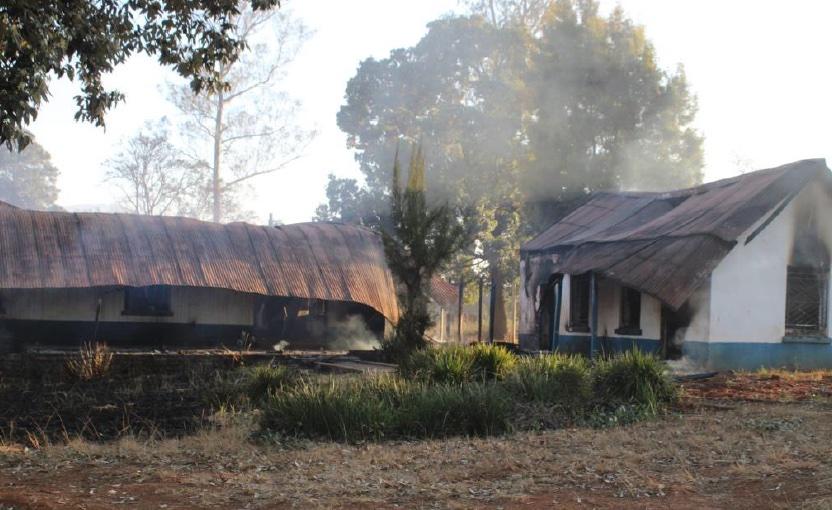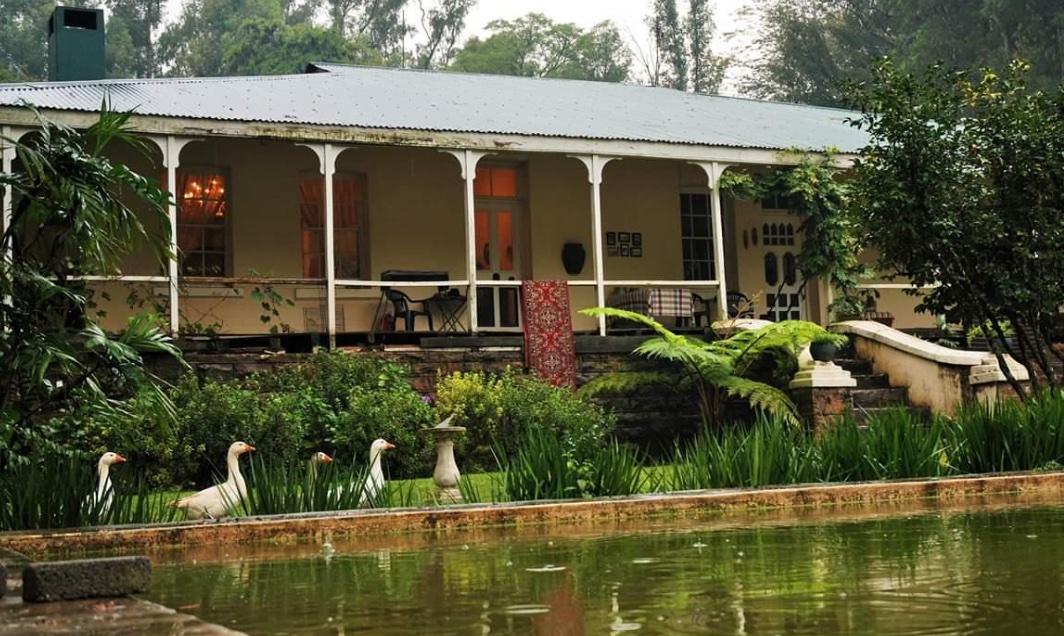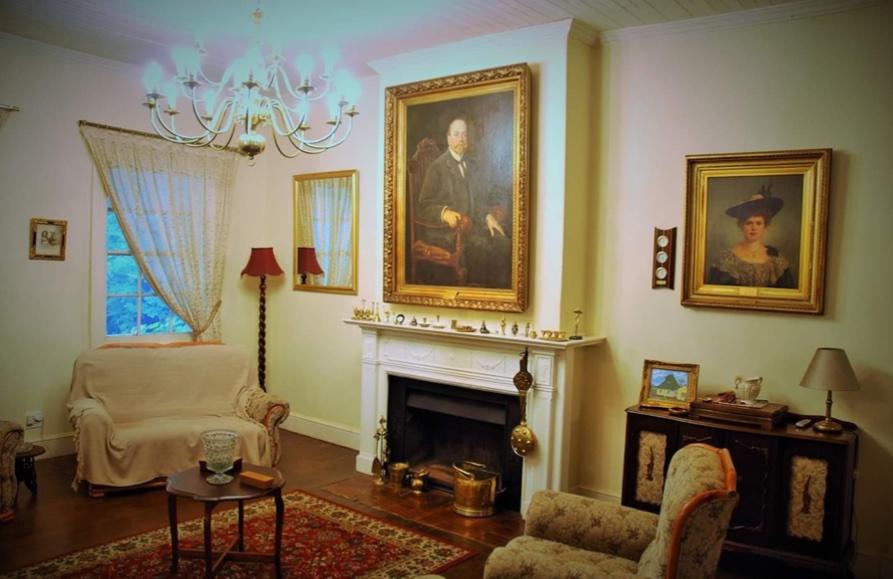
Disclaimer: Any views expressed by individuals and organisations are their own and do not in any way represent the views of The Heritage Portal. If you find any mistakes or historical inaccuracies, please contact the editor.
Huntington Hall, a mansion of profound historical significance in the village of Sabie, was tragically destroyed in a fire on the night of 28th August 2024.
The town of Sabie was started after H.T. Glynn and J.C. Ingle found gold there and formed the Glynns-Lydenburg Gold Mining Company. Huntington Hall, the manor house, used to belong to the owner of the old Glynn’s Lydenburg Gold Mine, H.T. Glynn. The town of Sabie was originally developed around this mine. The colonial structure was constructed in the late 1900s. The history of the house and its people were pivotal to the development of the region.
Huntington Hall before its falling into disrepair and being neglected by its local municipality and community
Below are some excerpts from the book: ‘Game and Gold - Memories of over 50 Years in the Lydenburg District, Transvaal’ by Henry T. Glynn
After the Anglo-Boer War, Lord Milner visited Pilgrims Rest and Sabie; he rode on horseback to Nelspruit from Pilgrims Rest and had relays. He called on us and had lunch at Huntington, with his escort of Colonels. While here my wife mentioned to him that it would be a great boon to the fields if a bridge could be thrown across the Crocodile River at Nelspruit, as the station was on the opposite bank and in summer time if rains were heavy, long delays occurred. He spoke very sympathetically and we got the bridge.
Lord and Lady Selborne, Lord Wolmer and the Hon. Palmer came through the fields from below the Berg trekking with wagons, and they stayed with is at Huntington on the 6th August, 1907. Lord Selborne, like Lord Milner, took a great interest in farming. I went down with the party to Nelspruit and on Waterval we bagged 10½ brace of partridge.
Sir Arthur and Lady Lawley, the Rev. and Mrs. Lawley, and Archbishop Carter also honoured us. They were all exceedingly charming and the people were all very thankful that they had visited the district.
Lord Methuen, his daughter and staff, also paid a visit and stayed with us at Huntington. He visited some of the mines and was shown Elandsdrift - the show mine - where rich pannings were forthcoming, obtained by Mr. Patrick, the manager, from the "Blow".
In 1920 we had the Hon, Mrs. Baring and Miss Fitzroy staying with us. We took them by car to Graskop and showed them where Jock of the Bushveld ascended the Berg. They were very charmed with the view from the edge of the Berg, and stated that it was worth coming to South Africa to see.
Inside the manor house in better days
A Sad Tale of Dereliction and Disrepair
In 2019 there was great concern in the Mpumalanga heritage community after the historic Huntington Manor House in Sabie went up for auction without any reference to the fact that the structure was a declared and numbered provincial heritage site. The building is registered with the South African Heritage Resources agency.
The notice of the auction appeared in Lowvelder on June 14, 2019. According to the notice, the site belongs to 23 Glynn Avenue Sabie Property Investments, currently in liquidation.
Concerned organisations included the Mpumalanga Provincial Heritage Council, Mpumalanga Heritage as well as the Heritage Association of South Africa. All these cautioned that heritage regulations can put considerable restrictions on development.
All development has to be done strictly according to the relevant heritage conservation regulations. The stand of nearly four hectares is centrally situated. The premises were fairly neglected but still in their original state. It was used as a well-maintained home until about 2009. The site contains an historic family graveyard.
In spite of the above warnings and representations no suitable purchaser could be found to restore and preserve this landmark. The house also became a hub for criminal activity, further exacerbating its decline. There were many gangs, criminal groups, and syndicates who stayed in this house and also drove theft from the house. The entire community was aware of these criminal activities, while also knowing that this house was a heritage site and no one was paying attention.
Neglect and decline
The loss of Huntington Hall serves as a stark reminder of the need for proactive measures to protect and preserve the historic landmarks that connect us to our past. The future of the site remains uncertain, but its historical significance will not be forgotten.
This article was compiled by the team from Mpumalanga Heritage and appeared in Newsletter No. 283
Comments will load below. If for any reason none appear click here for some troubleshooting tips. If you would like to post a comment and need instructions click here.



